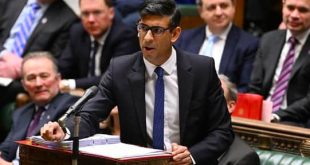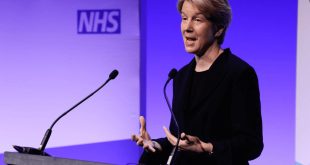A feeling of optimism, calls for more work to be done and a sense of relief – the reaction to the Gambling Act review White Paper from the UK’s research, education and treatment (RET) community has been eclectic to say the least.
Issuing statements to the regulatory proposals, three of the UK’s most prominent RET organisations outlined viewpoints on what steps the government and various industry stakeholders should take moving forward.
Anna Hemmings – GamCare users should ‘be at heart’ of new ombudsman
GamCare, a treatment organisation which operates the National Gambling Helpline, has been at the forefront of charity organisations calling for reform of the sector.
One notable area GamCare has voiced opinions on has been research, education and treatment funding, arguing in the past that ‘gaps’ required filling in the model.
Anna Hemmings, GamCare CEO, commented on yesterday’s developments: “We are pleased to see that the gambling white paper is now published. The measures the Government are proposing are an important recognition of the changes needed to make sure that legislation around gambling is fit for the digital age.
“At GamCare, our priority is making sure that people who need help receive it as quickly as possible. We therefore welcome the clarity the Government has provided on how research, education and treatment will be funded.”
On the topic of RET, Hemmings outlined that 85% of GamCare’s audience agreed that bookmakers should ‘meet the costs’ of supporting people affected by gambling-related harm.
Citing further figures, GamCare’s CEO also welcomed the inclusion of ‘financial risk checks’ for online betting, stating that 75% of the charity’s users stated that they struggled with long-term debt.
Finally, one of the last defining recommendations of the White Paper is the creation of an industry ombudsman to handle customer complaints and redress.
Hennings welcomed this development as a step towards ‘fair, transparent and quick resolution of complaints’, but called for GamCare service users ‘to be at the heart of the design of the new system’.
“We will now take time to carefully review all the proposals and respond to the detail of the white paper and any related consultations,” the CEO continued.
“We receive over 40,000 calls to our National Gambling Helpline every year and we will be looking for those people to share their thoughts on the proposals.
“As the leading gambling support charity in the sector, we look forward to working with the Government and our partners in the National Gambling Support Network, so we can move forward in shaping the future of gambling support.”
Paul Buck, EPIC – White Paper welcomed but more work needed
EPIC Risk Management, a gambling harm minimisation consultancy, expressed ‘cautious optimism’ upon reading the conclusions of the review, noting that the White Paper publication this week has been four years in the making.
EPIC CEO Paul Buck said: “We welcome the release of the Gambling Act Review white paper because whilst it is far from the end of the process due to another likely two or three years of discussions, this now informs where we’re heading to create a safer gambling industry within the UK.
“We welcome any legislation that looks to prevent gambling-related harm sensibly, but we’re acutely aware that today’s white paper still has plenty of work to do to iron out the details on key areas.”
Areas of particular significance for EPIC are the introduction of a £2 slot stake limit for players under the age of 25, as well as a pledge to adopt a mandatory research, education and treatment (RET) levy.
However, Buck noted that there are still some areas for concern. Much of the White Paper outlined that further consultations will be conducted, meaning its proposals are not exactly set in stone. Also, the percentage of industry revenue for an RET levy has also not been made clear.
“If you’re looking at the three main areas, the first is a statutory levy,” Buck continued. “That means the operators must give a certain percentage of profits to a research, education, and treatment levy. In principle, this could work, despite worries from public health experts globally.
“However, the consultation must clarify exactly who will independently commission this and ensure the funds are directed to the most effective organisations that can create the most impact. The effective commissioning of funding will be crucial and will take step-change progress.
“The other concern is that there is much talk of treatment (NHS) and research. Whilst these are crucial, we also believe that prevention is crucial, and it is a false economy that encourages harm if prevention is not front and centre of the conversation.”
Fiona Palmer – GAMSTOP shares BGC black market concerns
For GamStop CEO Fiona Palmer, the remit and reasoning behind the Gambling Act review were highly needed, as she agreed with the DCMS assessment that UK regulations need to be brought into the ‘smartphone age’, as Lucy Frazer MP argued in the House of Commons yesterday.
Palmer said: “Online gambling has changed out of all recognition since the 2005 Gambling Act, and we welcome any changes that protect vulnerable individuals, especially younger consumers who make up a significant percentage of our consumer base.”
The state of British gambling regulations and player protection measures has become a cause for concern for GAMSTOP lately, as the self-exclusion scheme operator recorded its ‘highest ever’ monthly registration figure in March.
As it stands, 365,000 people have registered with GAMSTOP since its inception back in 2019, with a record 84,000 signing up in 2022 and 8,504 last month.
However, in her statement, Palmer also shared a viewpoint with her counterparts of the Betting and Gaming Council (BGC), that being concerned around the presence of illegal operators, referred by the trade associaiton’s CEO Micheal Dugher as ‘the black market’.
“We are particularly concerned about the targeting of vulnerable individuals by illegal sites not registered with GAMSTOP,” she continued.
“More than 365,000 people have excluded themselves from online gambling and it is worrying that they are being deliberately targeted when they are at their most vulnerable.
“We are pleased that the Gambling Commission is to be given greater powers to deal with this issue, which we highlighted in our evidence to the DCMS.
“We are encouraged that legislation will be introduced, allowing the Gambling Commission to apply for a court order as a last resort, requiring ISPs, payment providers and other service providers to implement measures aimed at disrupting the business of an illegal gambling operator. This will provide greater protection for GAMSTOP’s users.”









